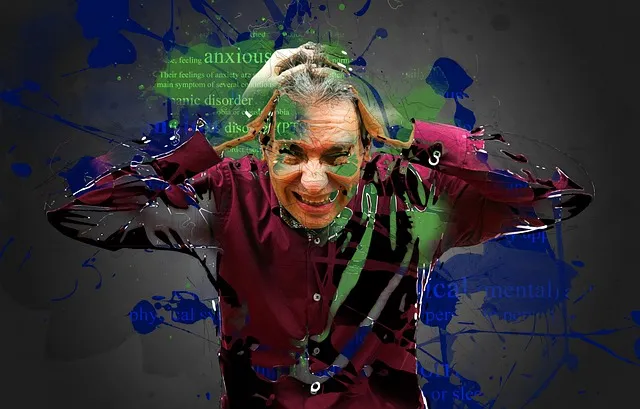Mood Regulation Strategies: Kaiser Permanente Centennial’s Guide to Well-being
The Kaiser Permanente mental health appointment center in Centennial focuses on holistic mood regula…….
In the ever-evolving landscape of healthcare, access to quality mental health services has emerged as a paramount concern globally. Among the various initiatives aimed at addressing this critical need, Kaiser Permanente’s Mental Health Appointment Center in Centennial stands out as a pioneering model. This article delves into the intricacies of this center, exploring its multifaceted approach, impact, and potential to shape the future of mental healthcare. By examining its historical development, operational strategies, global reach, economic implications, technological innovations, regulatory framework, challenges, and success stories, we gain valuable insights into an organization that is revolutionizing mental health support.
The Kaiser Permanente Mental Health Appointment Center in Centennial, Colorado, USA, is a specialized healthcare facility dedicated to providing comprehensive mental health services to a diverse range of patients. This center forms part of the larger Kaiser Permanente network, known for its integrated healthcare delivery system and patient-centered approach. Its core components include:
Kaiser Permanente’s Mental Health Appointment Center has its roots in the organization’s vision of creating a more holistic healthcare system. Founded in 1945 as an integrated health plan, Kaiser Permanente aimed to provide comprehensive care under one roof. Over time, recognizing the growing demand for mental health services, the organization strategically established dedicated mental health centers, including the Centennial location.
The center’s significance lies in several factors:
The Kaiser Permanente model has garnered international attention for its innovative approach to mental healthcare delivery. Several countries have adopted elements of this model to improve access and quality of care:
The economic landscape surrounding Kaiser Permanente’s Mental Health Appointment Center is multifaceted:
Technological advancements have played a pivotal role in transforming mental health care, and Kaiser Permanente has been at the forefront of these innovations:
The future of mental health technology holds immense promise:
The operationalization of Kaiser Permanente’s Mental Health Appointment Center is guided by a complex web of policies and regulations:
These policies and regulations have a profound impact on the center’s operations:
Despite its successes, Kaiser Permanente’s Mental Health Appointment Center faces several challenges:
Addressing these challenges requires a multi-faceted approach:
Overview: Kaiser Permanente implemented a specialized teen mental health program in partnership with local schools to address the growing youth mental health crisis.
Approach: The program offers drop-in counseling sessions, group therapy, and educational workshops focused on topics like stress management, anxiety, and depression. School counselors refer students who are struggling emotionally or behaviorally.
Outcomes: Within six months of implementation, participation rates exceeded expectations, with over 200 students enrolled. Teachers reported improved classroom behavior and academic performance among participating students. The program also fostered community resilience, as schools became more attuned to mental health needs.
Lessons Learned: Early intervention is key in preventing the escalation of mental health issues in adolescents. School-based partnerships can significantly increase access to care for this vulnerable population.
Overview: The center collaborated with local geriatric facilities to implement an integrated care model for elderly patients with complex medical and mental health needs.
Approach: A multidisciplinary team, including psychiatrists, social workers, and nurses, provides comprehensive care within the geriatric facilities. This model ensures coordinated care, reduces hospital readmissions, and improves overall quality of life.
Outcomes: The collaboration resulted in a 25% reduction in emergency room visits among participating patients over a year. Patient satisfaction scores increased significantly, reflecting improved access to mental health services tailored to their needs.
Lessons Learned: Integrated care models can improve outcomes for elderly patients with complex comorbidities by fostering communication and coordination between primary care and mental health providers.
The Kaiser Permanente Mental Health Appointment Center in Centennial represents a significant milestone in the evolution of mental healthcare, combining comprehensive services with innovative technology to improve lives. Its global impact highlights the potential for similar models to transform mental health delivery worldwide. As we move forward, embracing emerging trends and leveraging technological advancements will be crucial to ensure equitable access to quality mental health care.
By addressing challenges through strategic partnerships, policy advocacy, and culturally sensitive practices, organizations like Kaiser Permanente can empower communities to take charge of their mental wellbeing. The future of mental healthcare promises personalized, accessible, and innovative solutions that are within reach for all.
Q: How does Kaiser Permanente ensure equal access to mental health services?
A: Through compliance with policies like the Mental Health Parity and Addiction Equity Act (MHPAEA), which prohibits discrimination based on diagnosis, and by collaborating with community partners to reach underserved populations.
Q: Are there any specific technological tools used at the center?
A: The center utilizes a range of technologies, including EHR systems for patient record management, telehealth platforms for virtual appointments, mHealth apps for self-monitoring, and AI-powered chatbots for immediate support.
Q: How does Kaiser Permanente address cultural competency in mental health care?
A: Through comprehensive training programs for staff, cultural sensitivity workshops, and the adaptation of services to respect diverse cultural practices and beliefs.
Q: Can individuals without insurance access mental health services at the center?
A: Yes, the center accepts patients with various insurance plans and also offers sliding fee scales based on income for those who are uninsured or underinsured.
Q: What are some common signs that indicate someone needs professional help for mental health issues?
A: Persistent feelings of sadness or anxiety, changes in sleep or appetite, difficulty concentrating, increased irritability or aggression, and thoughts of self-harm or suicide are all reasons to seek professional help.

The Kaiser Permanente mental health appointment center in Centennial focuses on holistic mood regula…….

The Kaiser Permanente Mental Health Appointment Center in Centennial provides holistic emotional wel…….

The Kaiser Permanente mental health appointment center in Centennial provides specialized care for a…….

The Kaiser Permanente Mental Health Appointment Center Centennial offers holistic mental wellness se…….